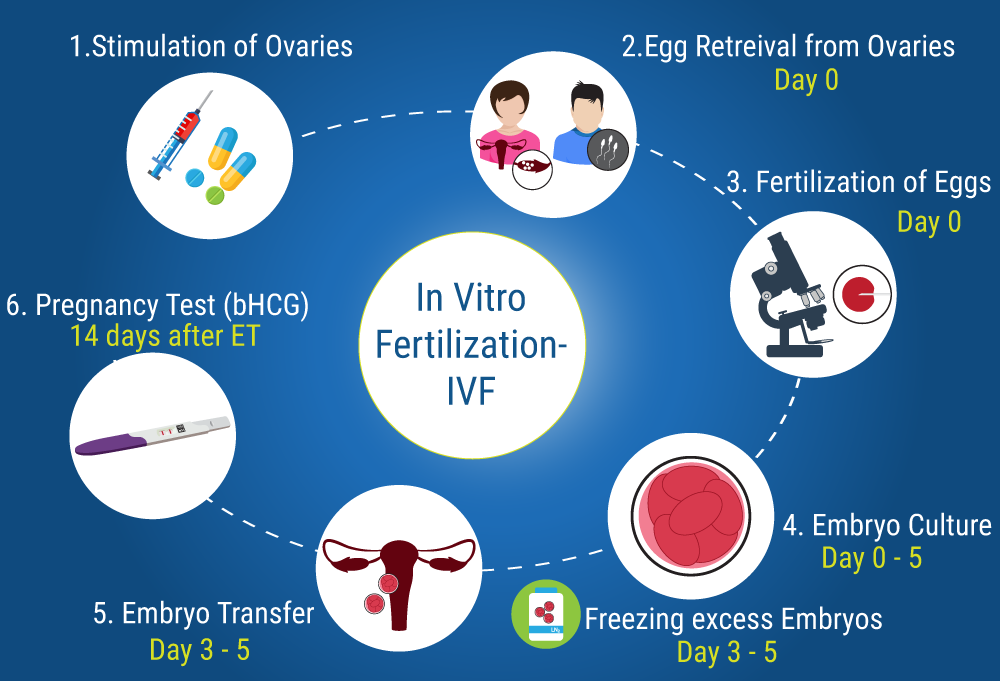The Cost of IVF
How Much Does IVF Cost?
You know in vitro fertilization is an expensive procedure, but how much does IVF actually cost? Here are projected prices based on several different scenarios.
In vitro fertilization (IVF) allows couples suffering from infertility to have children of their own. The procedure is relatively common; about 5% of children in America today were conceived through IVF, according to Amy Schutt, M.D., a reproductive endocrinologist at the Family Fertility Center at Texas Children’s Pavilion for Women. But despite its widespread availability, IVF is a pricey prospect, and proper financial planning is key. Here’s everything you need to know about the total cost of undergoing IVF.

The Cost of IVF
The cost of IVF depends on several different factors, like geographic location and egg type (fresh, frozen, or donor). But Dr. Schutt says the typical IVF cost in the United States is $12,000. This includes the procedure (retrieving eggs, inseminating them with sperm, and inserting them into the uterus), as well as ultrasounds, blood tests, embryo storage, anesthesia, and more. Patients also can expect to pay an additional $3,000 - $5,000 for medications that stimulate egg production.
The cost of IVF in some other countries is lower. for example the cost of IVF in Iran is about 2500 $- 3500$ ( Doctor visits, analyses, ultrasounds, medicines, ICSI, embryo transfer and freezing the remaining embryos).
What’s more, couples must decide whether they want genetic testing, which screens for chromosomal defects. With this testing, doctors can choose the healthiest embryos of the batch to insert into your uterus. Genetic testing also allows you to see the sex of your baby; some clinics even let you choose the gender. If you opt for genetic testing, know that it can add several thousand dollars to the overall IVF cost.
Here are some other factors that may affect your total bill:
Using Frozen Embryos: If using frozen embryos, whether from yourself or a donor, you skip one part of the IVF process: retrieving eggs from the ovary with ultrasound imaging and a needle. Because of this, IVF with frozen embryos costs less – usually around $3,000 to $5,000 total. (Keep in mind, however, that you may have already paid for freezing and storing your eggs).
Using Donor Eggs: Usually the procedural cost is lower when using donor eggs, because you won’t need to retrieve eggs from the ovaries. However, you’ll spend anywhere from $25,000 - $30,000 on the eggs.
The cost of IVF in some other countries is lower. for example the cost of egg donation in Iran is about 4000$ ( Doctor visits, analyses, ultrasounds, medicines,donated eggs ICSI, embryo transfer and freezing the remaining embryos).
Intracytoplasmic sperm injection (ICSI): If a man’s sperm has low mobility, the doctor can insert it directly into the egg with a process called ICSI. This will cost about $1,000 to $2,500.
Surrogacy: With surrogacy, a couple will need to shell out for legal fees and surrogate payment, in addition to the IVF procedure cost. This ranges from $50,000 to $100,000.
It’s important to note that the costs outlined above are for one IVF cycle. The success rate of IVF for those under 35 years old is around 54%, according to a 2015 study by the Society for Assisted Reproductive Technology (SART). The success rate depends on age and types of egg used (fresh, frozen, or donor); for more, check out the complete study here. Given these odds, many patients end up undergoing more than one IVF attempt, thus doubling or tripling the projected price.
Does Insurance Cover IVF?
The high cost of IVF may leave many wondering if the procedure is covered by insurance. The answer isn’t clear-cut. While most insurance companies won’t offer assistance, others may partially or fully cover IVF procedure, infertility diagnosis, or medication. Fifteen states mandate some kind of insurance coverage for fertility treatments: Arkansas, California, Connecticut, Hawaii, Illinois, Louisiana, Maryland, Massachusetts, Montana, New Jersey, New York, Ohio, Rhode Island, Texas, and West Virginia. Check with your insurance provider and workplace for more information about coverage.
You may also consider researching your fertility clinic’s financial plans. Some clinics offer refund plans that let you pay for multiple IVF cycles upfront. If none of the cycles are successful, some amount of refund will be rewarded.
- ۰ نظر
- 20 September 21 ، 08:04
- ۲۱۰ نمایش



